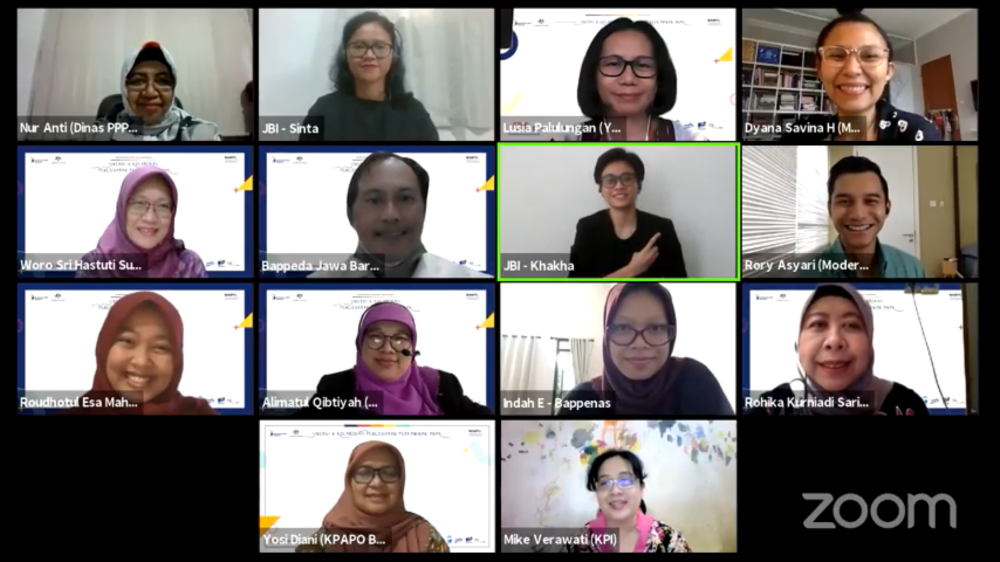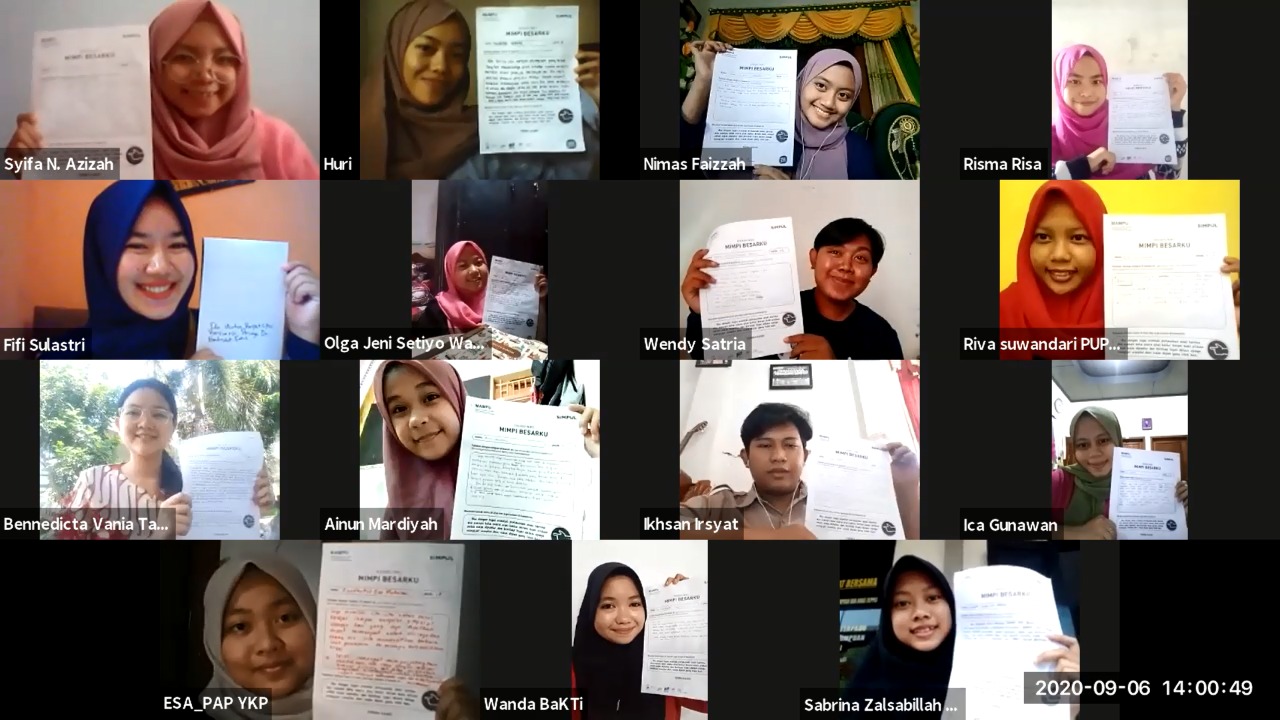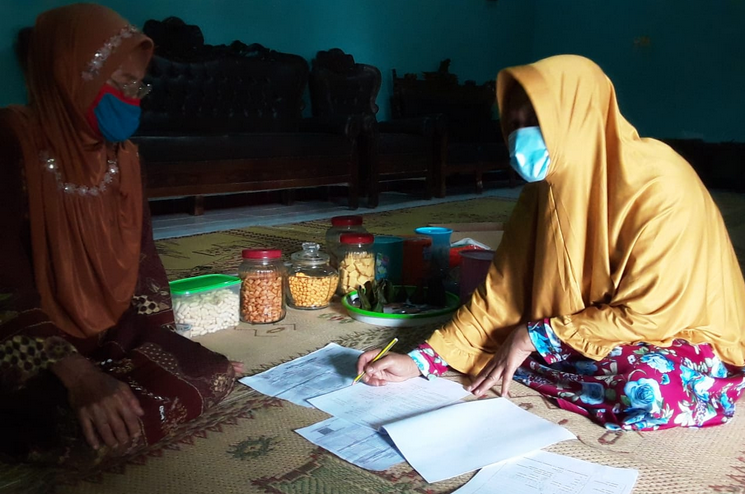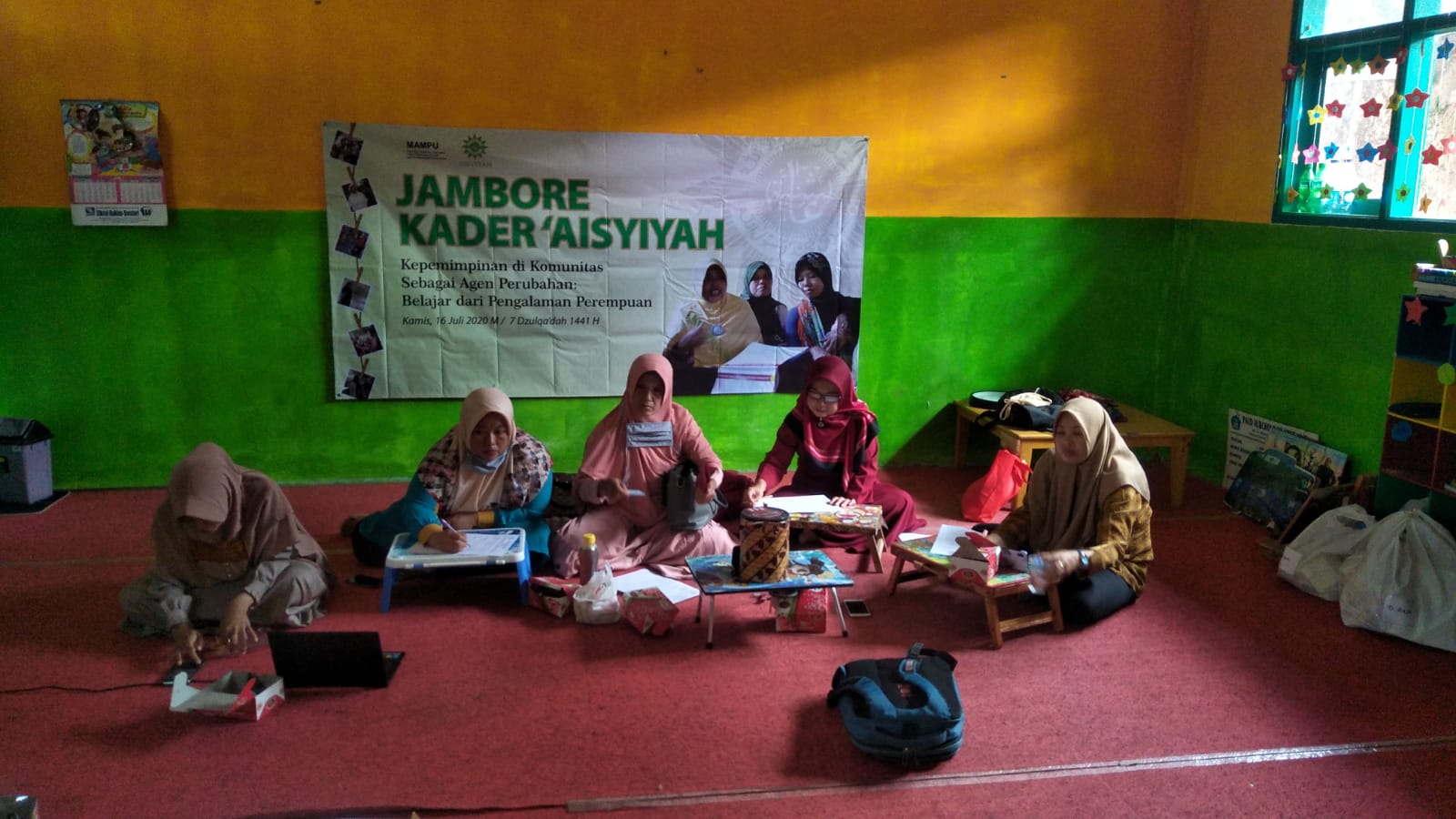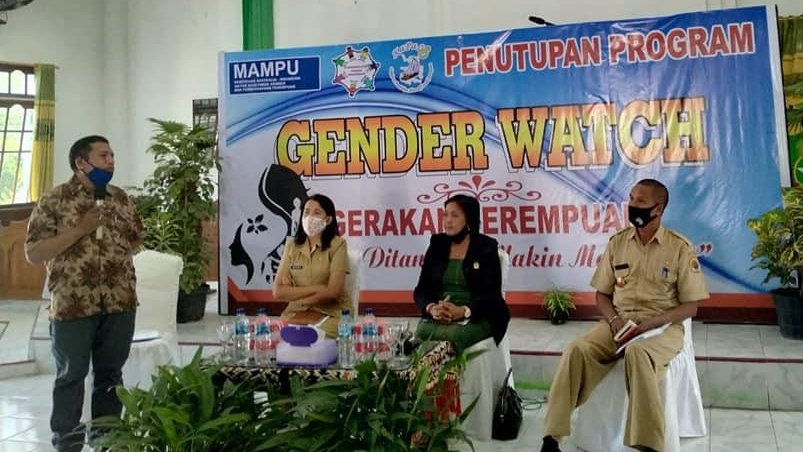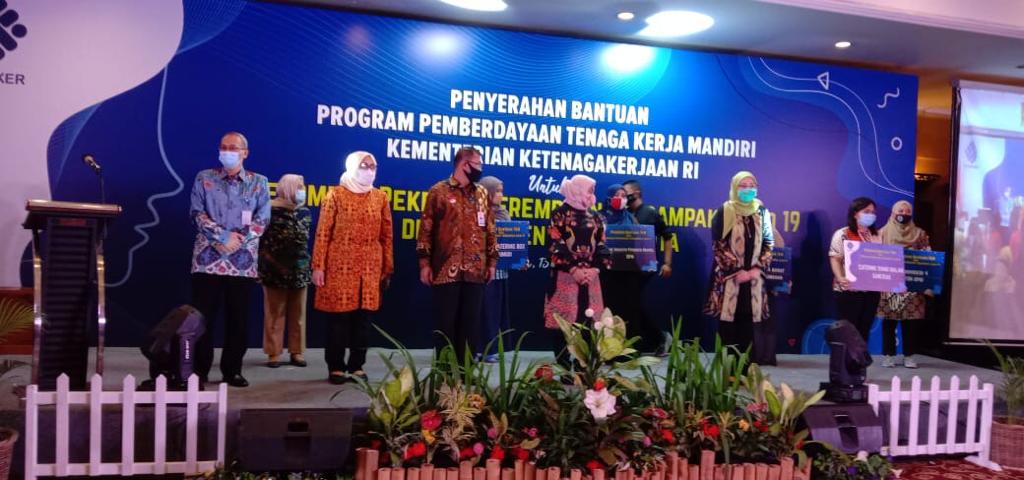Event
MAMPU Partners Provide Recommendations for the Omnibus Law on Job Creation
26 August 2020Author: Amron Hamdi
Since its emergence, the Omnibus Bill on job creation, has received a lot of public attention, especially by trade unions and workers. The bill has been increasingly debated, especially during the COVID-19 pandemic, because some of the bill’s contents are considered to be insensitive to the prevailing conditions in society. In order to encourage the fulfilment of workers’ rights, and gender mainstreaming within the bill, several MAMPU Partners, including Migrant Care, the Trade Union Rights Center (TURC), Annisa Swasti Foundation (Yasanti), and the Foundation for Rural Capacity Building (BITRA) submitted recommendations for the labour cluster of the bill through a List of Issues (DIM). On 20 May, MAMPU Partners submitted the DIM to the Peoples’ Representative Council (DPR) work committee presiding over the bill.
“In the midst the pandemic, informal workers are increasingly vulnerable because they are not covered by Employment Social Security Insurance. Informal workers who are women experience higher vulnerabilities because they are often ‘hidden’ from the scope of data collection and coverage of the social security programs,” said Migrant Care’s Wahyu Susilo on 25 June during the webinar titled ‘What’s new with the Omnibus Law? Civil Society’s Recommendations for Incorporating Workers Protections into the Job Creation Bill’.

A number of civil society organisations reject clauses in the omnibus law and have held protests against it. Some organisations contend that the regulation lacks gender perspective and ignores women’s interests. Tiasri Wiandiani, Commissioner of the National Commission for Violence against Women (Komnas Perempuan), explained that the bill weakens maternity care provisions: “In the draft regulation, companies are not obliged to pay wages for menstrual leave. This Omnibus Law also only regulates the provincial minimum wage which, in practice, is usually lower than the district minimum wage, so this will impact on reducing wages for women who work in labor-intensive sectors,” said Tiasri. She explained that under current regulations, wages for leave during menstruation are guaranteed by the Law 13/2003 on Labour.
Nearly 60% of Indonesia’s workforce are informal workers, such as domestic workers, day labourers and homeworkers. During the second webinar in the ‘What’s new with the Omnibus Law’ series titled ‘Working Women and MSME’s,’ Andi Misbahul Pratiwi, a researcher from the Trade Union Rights Center (TURC) contended that the bill seriously threatens protections for informal workers. “According to our observations, there are two articles, namely Article 64 and 65 of the Bill which actually eliminate the requirements of the outsourcing work mechanism through a work contracting agreement. The practice of homework is increasingly popular, though previous laws do not protect the rights of homeworkers, and neither does this new draft Omnibus Law,” explained Andi.
Because of disagreement on the contents, President Joko Widodo has delayed the deliberation on the labour cluster of the Omnibus Bill. The President announced that the government and the DPR have agreed to delay discussion on the cluster so as to investigate each article in more depth and garner feedback from more stakeholders.







